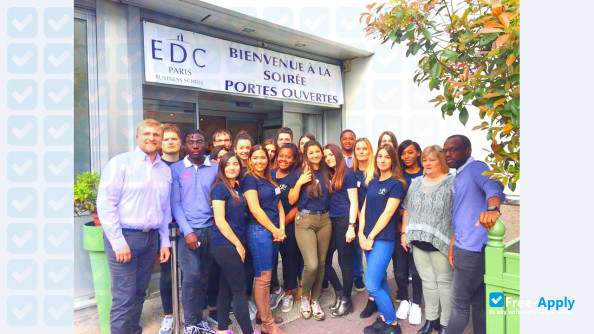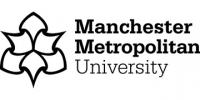MA Inclusive Education
Our MA Inclusive Education masters is a flexible course for anyone interested in critically exploring inclusive education. We offer a full-time route and a part-time route so you can study at a pace that suits you.
From early years practitioners, teachers and leaders in education, to staff in local health authorities, health services and aspiring researchers, our course appeals to a variety of backgrounds and professions. You’ll be joining a diverse and thriving community of postgraduate students from the UK and across the world.
Analyse key issues, significant debates and global concepts in the field of inclusive education. Reflect on your personal understandings of special educational needs and consider the relationship between educational values and the development of inclusive practice.
You will evaluate and learn to think with a range of theoretical frameworks to deepen your critical analysis. And you’ll explore how theory informs how we interpret and analyse key issues in education.
We aim to empower you to approach your own research with confidence. You’ll extend your understanding of research techniques to prepare you for completing your own dissertation. Throughout the project, you will have access to support from active researchers in our internationally renowned Educational and Social Research Institute (ESRI).
We’ve designed this postgraduate course to allow you to specialise and focus on areas of education that interest you. You can specialise by choosing an option unit based on work by world-class researchers in the Faculty of Education. Your option units may include topics such as literacy and language, mental health, autism, or international perspectives in education.
When you graduate, you’ll achieve a masters degree that highlights areas of your personal and professional interest.
Whether you take our part-time or full-time course, you will start your MA Inclusive Education with two core units.
In your first unit, you’ll critically explore global key issues in inclusive education and look at relevant, current legislation in the UK and how it affects policy and practice in educational settings. You‘ll relate your learning to your own practice and understanding of inclusive education, and its wider connection with issues such as social justice.
And in the second core unit, you’ll engage with theoretical frameworks to deepen your analysis. And you’ll explore how theory informs how we interpret and analyse key issues in education today.
You will examine issues of marginalisation, disability and difference, and race and culture, and consider the theoretical frameworks which underpin them. Through this, you’ll start to develop your own theoretical position. You’ll draw from fields such as critical pedagogy, disability studies and critical race theory to think about inclusive education in relation to the challenges of globalisation, power, agency, inequality and diversity, and sustainability.
You’ll join students from other education-based masters courses in a third core unit, Principles and Practice of Educational Research. We’ve designed this unit to develop your understanding of critical issues and methodologies within research and help prepare you for completing your own dissertation.
In the fourth unit, you’ll pursue your own individual interests by choosing one of a series of option units. Our option units are designed and delivered by active researchers from within our internationally renowned Educational and Social Research Institute (ESRI). We’ve designed these option units to reflect our world-class research carried out at the Faculty of Education.
Our taught units are assessed by coursework. This allows you to focus the topic of your work on areas that suit your professional and personal interests.
The final part of your masters is a dissertation. For many students, this is the most challenging part of the course, but also the most interesting and most rewarding.
With guidance from your expert teaching and support team, you’ll design and carry out a research project of your own and complete a written thesis.
Some recent examples of topics include:
a reflective study of the impact on one family of changes in the provision for learners with Special Educational Needs over 30 years
communicating with severely autistic children in class
a critical analysis of the principles of inclusive education
teachers’ and parents’ perceptions of school readiness
You’ll also benefit from our integrated support network of services offered at Manchester Met, as well as our course-specific support provided by your programme team. You will have a personal tutor to accompany you throughout your studies. Your tutor aims to provide tailored support and advice from start to finish.
As a student at Manchester Met, you’ll also be able to access Masterclass. Masterclass is a wide range of optional year-round discussion groups, reading groups, writing workshops and events designed specifically for and with masters students in the Faculty of Education.
Campus Information
Manchester campus
In the city centre, our Manchester Campus is well connected by many types of transport. Where possible, we encourage the use of walking or cycling to access the campus.
Intakes
- Sep
Application Processing Time in Days: 20
Application Process
Minimum English Language Requirements
| English Level Description | IELTS (1.0 -9.0) | TOEFL IBT (0-120) | TOEFL CBT (0-300) | PTE (10-90) | |
|---|---|---|---|---|---|
| Expert | 9 | 120 | 297-300 | 86-90 | |
| Very Good | 8.5 | 115-119 | 280-293 | 83-86 | |
| Very Good | 8 | 110-114 | 270-280 | 79-83 | |
| Good | 7.5 | 102-109 | 253-267 | 73-79 | |
| Good | 7 | 94-101 | 240-253 | 65-73 | |
| Competent | 6.5 | 79-93 | 213-233 | 58-65 | |
| Competent | 6 | 60-78 | 170-210 | 50-58 | |
| Modest | 5.5 | 46-59 | 133-210 | 43-50 | |
| Modest | 5 | 35-45 | 107-133 | 36-43 | |
| Limited | 4 | 32-34 | 97-103 | 30-36 | |
| Extremely Limited | < 4 | < 31 | < 93 | < 30 |
Job Opportunity Potential
We are a great, modern university, in a great global city, here to make an impact on Manchester, our nation and beyond, with a driving ambition to discover and disseminate knowledge, and make higher education accessible and beneficial to all those with the passion and ability to succeed.
Our campus is designed around the student experience, providing our students with high quality teaching in a friendly and supportive environment and with some of the best learning facilities in the UK.
We work closely with our city, with business, the community and our academic peers – locally, nationally and internationally – to be inventive and creative, generate great opportunities, and enable our students, colleagues and everyone whose lives we touch to make an impact.
We offer fantastic opportunities for both academics and those working in professional support roles. Our faculties are vivid communities and experimental workshops, vibrant spaces in which you can contribute, challenge and create. Communities in which you’ll innovate, experiment and grow.
Manchester is more than just a city. It’s a fashionable and exhilarating place to live, a cultural hub championing diversity, an urban centre built on a fascinating history and a world-leading powerhouse in business and academia. All in all, it is an exciting time to join Manchester Metropolitan University.
PSW Opportunity
2 Years PSW is applicable after the course completing (Bachelors level or above)
Admission Requirement / Eligibility Criteria
Applicants study must have a first degree, postgraduate diploma or professional qualification recognised as equivalent to an undergraduate UK honours degree (at least a 2:2). Other qualifications or experience may be considered.
Note: If you have completed a PGCE within the last five years, you can normally join the masters with advanced standing, which usually 60 credits. This means you complete two taught units before progressing to dissertation.
With the agreement of the programme leader, other relevant and recent level 7 qualifications may also permit advanced standing via recognition of prior learning; it is possible with the agreement of the programme leader to incorporate recognition of prior experiential learning (eg relevant work experience). Further advice and guidance on this will be available after you enrol.
English language
Applicants whose first language is not English must have IELTS with an overall score of 6.5 with no less than 5.5 in any category, or an equivalent accepted English qualification.
For More Information Please Connect Our PSA Counselor
- Course Type: Full Time
- Course Level: Masters/PG Degree
- Duration: 01 Year
-
Total Tuition Fee:
16500 GBP
Annual Cost of Living: 9207 GBP
Application Fee: N/A
Similar Programs
- MSc Evaluation and Policy Analysis at Manchester Metropolitan University
- MA Education at Manchester Metropolitan University
- MA Social Research at Manchester Metropolitan University
- LLM in Legal Practice with LPC at Manchester Metropolitan University
- LLM in Legal Practice at the Bar at Manchester Metropolitan University
- LLM (Master of Laws) at Manchester Metropolitan University

